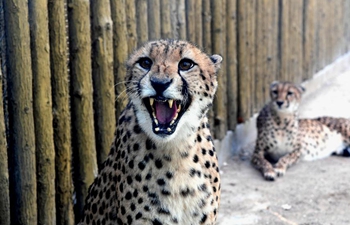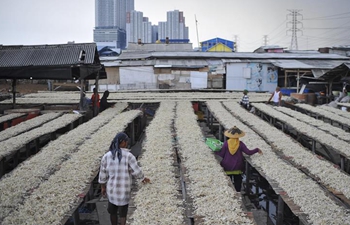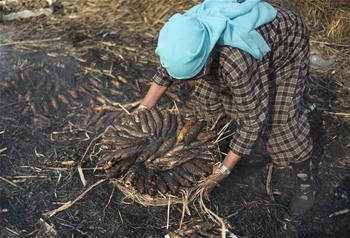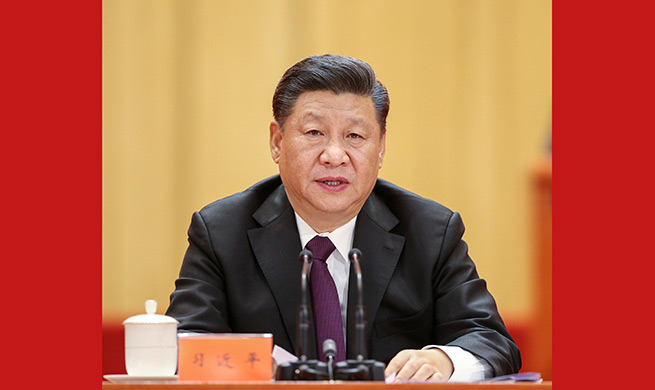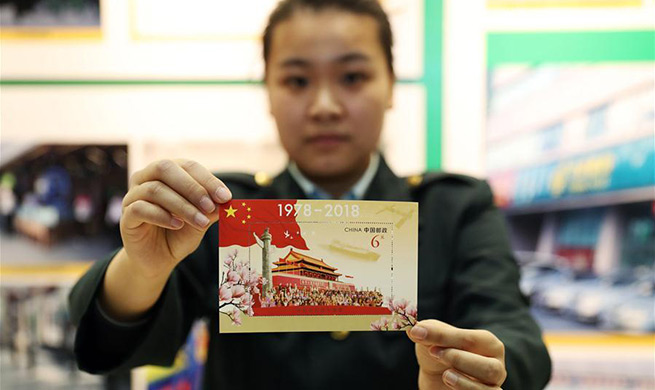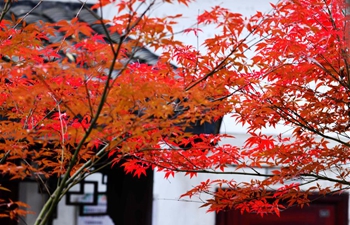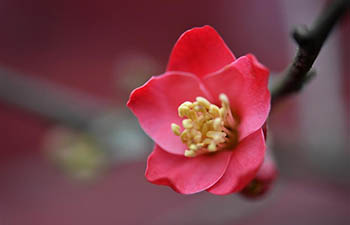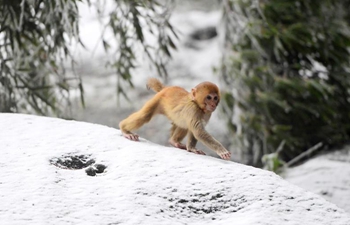SYDNEY, Dec. 19 (Xinhua) -- Crocodile farmers in Australia's Queensland state can now legally hunt and collect the reptiles' eggs in the wild for the production of luxury goods and other products under latest conservation guidelines, amid warnings about the large reptiles lurking in floodwaters.
The hunters will need to apply for a license to gather the crocodiles' eggs, to be transported to private farms and hatched for their leather and meat, reported local media on Wednesday.
"This has been something that we've been praying for a long while," crocodile farmer John Lever told the ABC news channel.
"I never thought I'd see it while I was alive ... Now we can apply to collect eggs from various sites in Queensland," said Lever, who had to travel to neighboring Northern Territory areas to gather the eggs and was one of the first hunters to apply for the license.
Crocodiles are a protected species in Queensland. State authorities have imposed an annual statewide limit of 5,000 crocodile eggs, with egg hunters expected to comply with strict guidelines under a wildlife trade management plan, reported the channel. Input and feedback from independent wildlife specialists and public consultation were also considered, it said.
"License holders will be required to monitor crocodile numbers to ensure the harvesting is not having a detrimental impact on the local population," a spokesperson for the state's environment and science department was quoted as saying.
The latest rules, which come amid warnings about the large reptiles being spotted in floodwaters north of the state hit by severe storms, will help landholders deal with any negative impacts of the reptiles on their property, said Lever. A female crocodile lays about 50 eggs, which can be worth up to 20 Australian dollars (14.4 U.S. dollars) each, he added.
"A lot of these guys think crocodiles are vermin because they're not worth anything and they eat their calves or their foals," he said.
"Now they've got an economic incentive to keep crocodiles on their place, so from a conservation aspect it really works."
